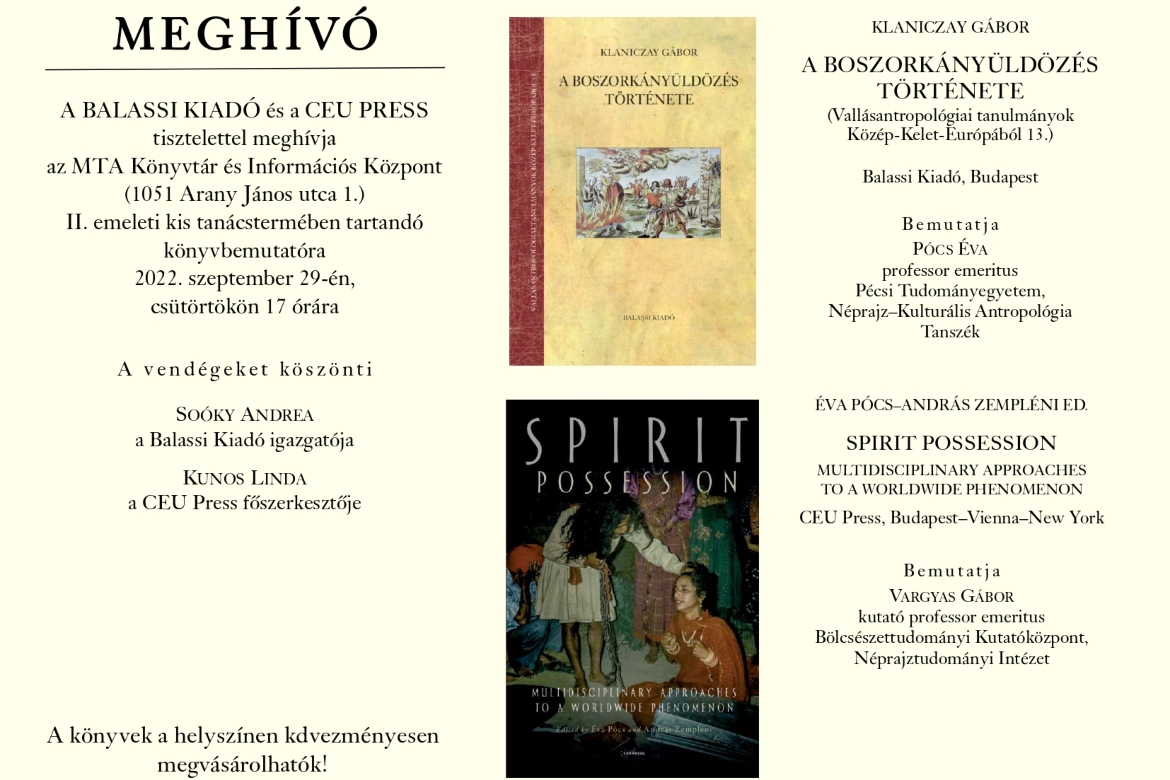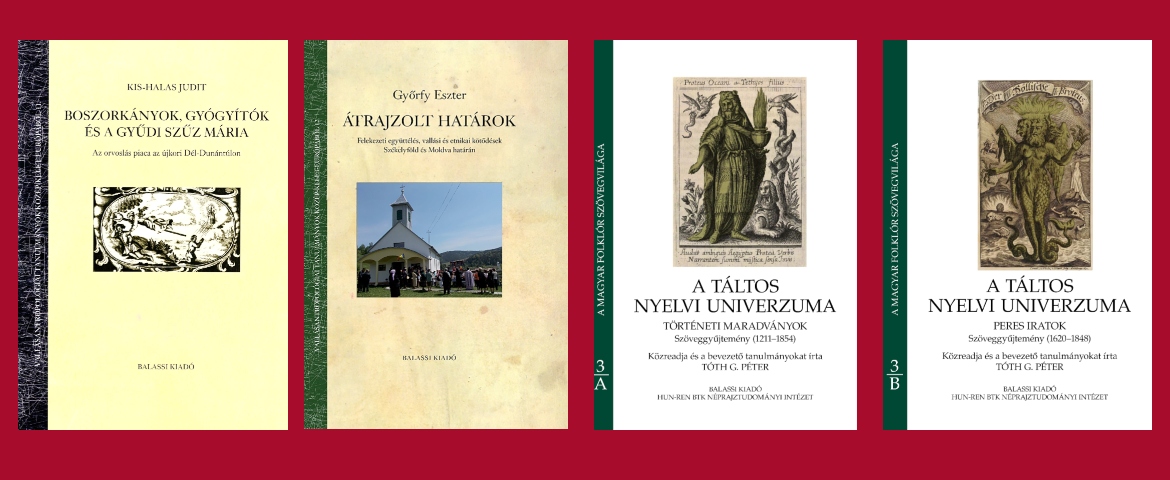- Title of the project: Folk belief, vernacular religion, mentality in the 16th–21st centuries. Digital databases, encyclopedic summaries
- Duration of the project: December 1, 2019 – June 30, 2025
- Principal investigator: Éva Pócs
- Project type: NKFIH K
- Funding organization: National Research, Development and Innovation Office
- Project number: NKFI K 132535
The aim of the research project is to explore folk religion, folk beliefs and mentality through an interdisciplinary approach. It investigates the characteristics of and changes in vernacular religion, and the normative role of religion in rural micro-societies from the early modern era to the present time, from the age of enlightenment to the secularization and modernization processes in modern rural communities.
The research questions relate to the entire religious field, focusing on certain key topics (such as the cult of saints, sacred communication, witchcraft, demonology and religious folklore genres), with regard to the past and present alike and in varying social environments.
Another objective of the project is to extend the historical and contemporary index card archives and digital databases of around 160,000 records created in previous projects (Digital Database of Hungarian Witch Trials; Archive and Digital Database of Hungarian Folk Belief and Folk Religion) with data collected since the turn of the millennium, and to create new sub-systems (Digital Database of Hungarian Verbal Charms, Digital Database of Etiological Legends), as well as the technical development and publication of the databases.

Research methods range from historical-anthropological investigations and case studies to anthropological fieldwork, analyses of folklore texts and comparative studies of religious phenomena and beliefs in Central and South-Eastern Europe. An important methodological principle is complexity: the joint work of scholars of history, religious studies, anthropology and folklore studies, and the combination of anthropological analysis of contemporary phenomena and historical research in the case of certain key topics.
Expected results: 20 books and about 60 articles (in Hungarian and English), an index card archive of 160,000 records, and four digital databases containing a total of about 200,000 records.
Relevance: The research project takes into account the social context and function of the phenomena under study, their European connections, and the cultural and social processes taking place in modern Central and Eastern European societies. It can therefore be important for a better understanding of social and cultural processes and crises in the present.
International embeddedness: all research is connected to contemporary European trends (personal contacts, specific research collaborations with universities and research institutions in Ljubljana, Zagreb, Belgrade, Cluj, Bucharest, St Petersburg, Turku, Amsterdam, Brussels, London; mutual participation in research projects, conferences, book publications, publications in foreign volumes, journals, etc.).



